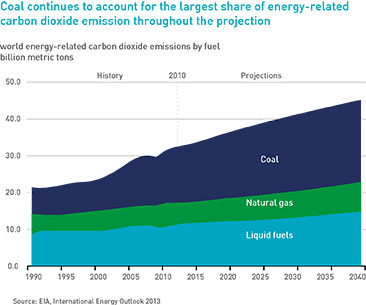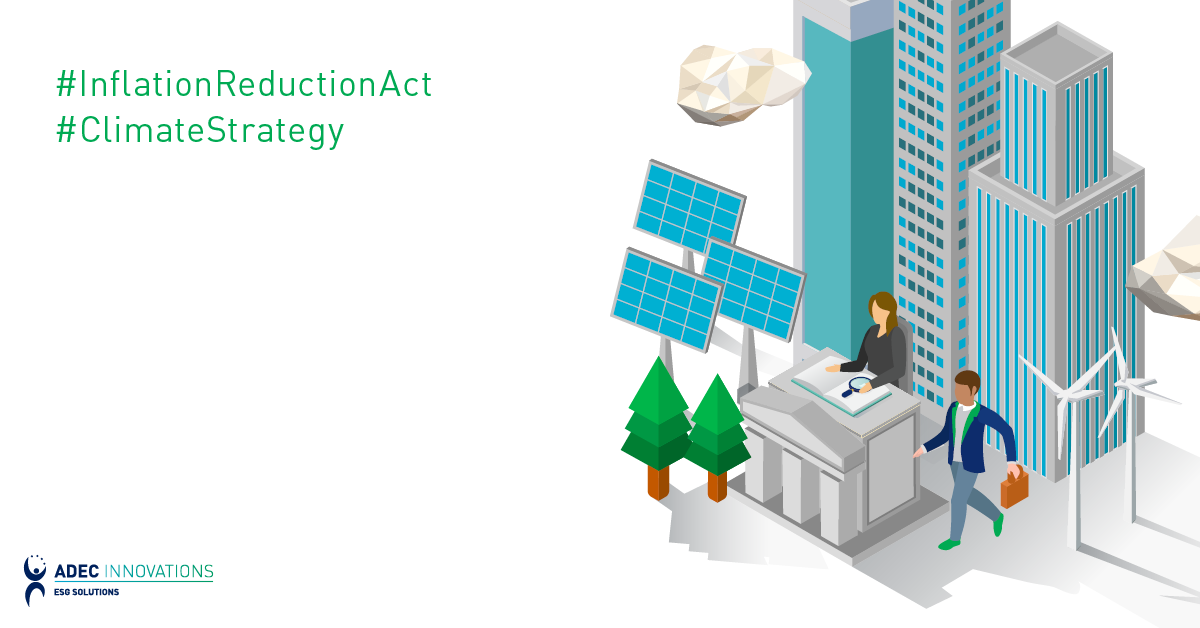
Let’s face it! Among the major sectors of the economy, the industrial sector consumes the most amount of energy. Many of the organizations that make up this sector belong to high energy consuming industries such as manufacturing, mining, construction and agriculture. That being the case, it only follows that energy-related data from this sector would be immense.
But why is there a need to collect such large amounts of data? There is an old business saying that best answers this question: “You can’t manage what you can’t measure. Energy is one of the many costs of production that influences the price companies sell their products to customers, i.e. retailers, wholesale buyers, and direct buyers. It’s a ripple-effect where not only the economy but also the environment is affected.
According to the U.S. Energy Information Administration in its International Energy Outlook 2013, the worldwide carbon dioxide emissions related to energy production and consumption will increase to a staggering 46% by 2040. This means we will reach 45 billion metric tons in 2040, and the industrial sector is leading the charge.
 If the biggest consumer of energy cuts down in its consumption of energy, then energy production and carbon dioxide emissions will not be as great. However, this is easier said than done. It is possible, but it would take a concerted effort from management and employees within the organization comprising the industrial sector, to make a significant change in these projected numbers.
If the biggest consumer of energy cuts down in its consumption of energy, then energy production and carbon dioxide emissions will not be as great. However, this is easier said than done. It is possible, but it would take a concerted effort from management and employees within the organization comprising the industrial sector, to make a significant change in these projected numbers.
This brings us back to the huge amounts of energy-related data mentioned earlier. This information is used during programs initiated to mitigate energy consumption. One such way is for the company to undergo an energy audit where an analysis of historical data is used to reduce the amount of energy a company uses without affecting the output in a negative way. The same data that cuts energy consumption costs can also be used to find ways of reducing an organization’s environmental impact, decrease greenhouse gas emissions, make better decisions concerning energy efficiency policies, streamline processes and technologies to purchase, or use in day to day operations.
Another aspect where more data collected means more benefits for the organization is in emissions trading. When a company has significantly reduced the amount of greenhouse gasses it produces, then it is able to sell the difference between the amount it’s allowed to emit, and where it currently stands when compared to companies whose emissions have gone beyond what is allowed of them. Most importantly, the information gathered is used by businesses in all sectors to be compliant with local, federal and state laws concerning sustainability and greenhouse gas reporting when building their image as stewards of the environment, which many consumers now consider when choosing what products or brands to buy.
FirstCarbon Solutions (FCS) has robust software that systematically collects your energy-related data and converts it to an easily understood report that achieves your sustainability goals. Sustainability Work Bench (SWB) is completely customizable to give you exactly what you want in terms of reducing costs, optimizing resource use and increasing your bottom line. Click the button below to find out more:





